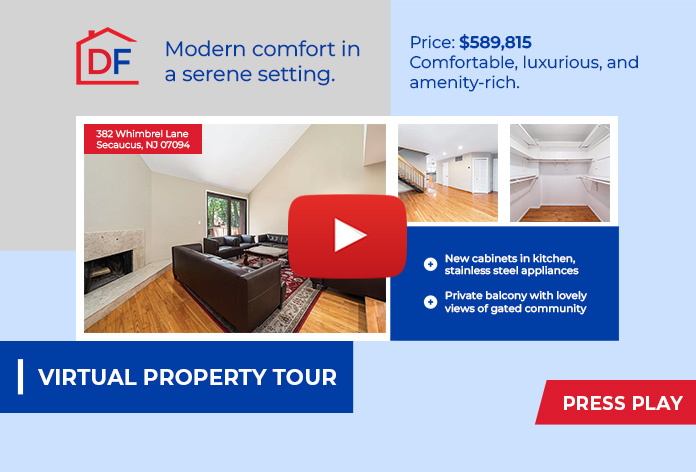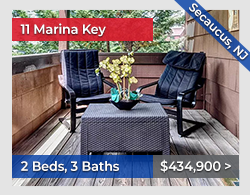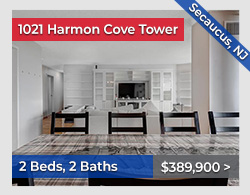Before signing a lease, perform essential checks for your protection and assurance. Research the rental market extensively, visit the property, inspect meticulously, and review the lease with keen attention. Verify the landlord's reputation, understand all costs and fees, check for safety measures, and know your tenant's rights and obligations. Examine the amenities, services, and community suitability thoroughly. Remember to take into account the neighborhood's public transportation, safety, and school quality. This concise checklist guarantees that you make an informed decision regarding your new rental property.
Key Takeaways
- Verify the lease duration and renewal terms.
- Scrutinize all the fees, deposits, and costs.
- Check landlord references and payment history.
- Understand maintenance responsibilities and repair agreements.
- Familiarize yourself with tenant rights and obligations.
Research Rental Market Trends
Before signing a lease, you should thoroughly research current rental market trends to make sure that you are getting the best deal possible. Start by analyzing rental affordability trends in the area you are considering. Look into the median rental prices, the percentage of income spent on rent by residents, and any recent changes in rental rates. Understanding these factors will give you insight into whether the rental market is in your favor or if prices are on the rise.
Additionally, take the time to explore housing market predictions for the upcoming months. Predictions regarding market stability, rental demand, and potential economic factors can help you anticipate any fluctuations in rent prices. By staying informed about the housing market forecast, you can make a more educated decision when negotiating your lease terms. Remember, knowledge is power in the rental market, and being proactive in your research can lead to significant cost savings in the long run.
Visit And Inspect The Property
Perform a comprehensive inspection of the property you are contemplating leasing to guarantee that it meets your expectations and complies with all necessary requirements. Start by conducting a property condition assessment to ensure that there are no hidden issues that could later become your responsibility. Create an inspection checklist covering aspects such as plumbing, electrical systems, appliances, and structural integrity. Simultaneously, venture into the neighborhood for a thorough exploration to assess the safety, amenities, and overall vibe of the area. This step is crucial in determining whether the property aligns with your lifestyle and preferences.
| Property Inspection Checklist | Neighborhood Exploration | Rental Market Analysis |
|---|---|---|
| Plumbing | Safety of the area | Rental prices |
| Electrical systems | Nearby amenities | Vacancy rates |
| Appliances | Community vibe | Market trends |
Review Lease Terms and Conditions
Before signing a lease, make sure to carefully review the lease duration details. Check the specifics regarding the rental fees and deposits to understand the financial obligations involved. Understanding these terms and conditions is essential to avoid any misunderstandings during your tenancy.
Lease Duration Details
Have you thoroughly examined the lease terms and conditions regarding the duration of the rental agreement? Understanding the lease duration details is essential before signing any rental agreement. Lease renewal options dictate whether you have the right to extend your lease once it expires. It's important to know whether the lease automatically renews or if you need to provide notice within a specified timeframe. Additionally, familiarize yourself with the subletting policies outlined in the lease. Subletting refers to renting out the property to another party, which may be allowed or prohibited based on the terms of the lease. Make sure that you are aware of any restrictions or requirements related to subletting to avoid any potential conflicts in the future. Reviewing these aspects ensures that you are fully informed about the lease duration details and your rights and responsibilities as a tenant.
Fee And Deposit Breakdown
Upon reviewing the lease terms and conditions, carefully scrutinize the breakdown of fees and deposits to understand your financial obligations as outlined in the agreement. Pay close attention to the refundable deposits, which are amounts that you may be able to recover under specific circumstances, such as returning the property in good condition at the end of the lease. Refundable deposits typically include the security deposit, which serves as protection for the landlord against damages beyond normal wear and tear.
In addition to refundable deposits, be aware of any additional fees that may be stipulated in the lease agreement. These could encompass charges for amenities, maintenance, utilities, or late payments. Understanding these additional fees is essential to avoid any surprises and budget your finances accordingly throughout the tenancy period. Make sure to clarify with the landlord or property manager any uncertainties regarding the fee and deposit breakdown to establish a transparent and mutually beneficial rental agreement.
Verify Landlord's Reputation And Credibility
Before committing to a lease agreement, it is essential to verify the landlord's reputation and credibility. Check landlord references to gain insights into their past interactions with tenants. Additionally, conducting research on the landlord's background can provide valuable information about their track record and reliability.
Check Landlord References
Guarantee a thorough vetting of the landlord's reputation and credibility by reaching out to previous tenants and requesting references from other property owners in the area. Tenant testimonials and landlord history can provide valuable insights into the landlord's behavior and management style. Seek trustworthy references that offer positive feedback about the landlord's responsiveness to maintenance issues, fairness in dealing with security deposits, and overall professionalism.
| Landlord References Checklist | Action |
|---|---|
| Contact previous tenants. | Inquire about their experience living on the property and their interactions with the landlord. |
| Request references from other property owners. | Obtain feedback on the landlord's reliability and adherence to lease agreements. |
| Verify rental payment history. | Ensure that the landlord is prompt in addressing rent-related matters. |
| Inquire about maintenance response time. | Assess how quickly the landlord addresses repair requests. |
| Check for any legal disputes. | Look into past legal issues to gauge the landlord's compliance with rental laws. |
Research Landlord Background
To guarantee a thorough evaluation of the landlord's reputation and credibility, conducting in-depth research into their background is crucial. Begin by requesting tenant screening information from the landlord, which may include credit checks, references, and rental history. This process will help you assess the landlord's professionalism and reliability in managing properties. Additionally, explore online platforms and databases to access landlord reviews and feedback from previous tenants. These reviews can provide valuable insights into the landlord's communication style, responsiveness to maintenance requests, and overall satisfaction of tenants under their management.
When reviewing landlord reviews, pay attention to recurring themes or issues raised by multiple tenants. Look for patterns that could indicate potential problems or strengths in the landlord's management approach. By investing time in researching the landlord's background, you can make an informed decision before signing a lease and ensure a positive rental experience. Remember, a thorough evaluation of the landlord's reputation is a critical step in securing a rental property that aligns with your expectations and needs.
Understand Rental Costs And Fees
Make sure that you are fully aware of all rental costs and fees associated with the lease agreement before proceeding further. Hidden costs can sometimes catch renters off guard, so it is essential to carefully review the lease agreement and ask the landlord about any additional expenses that may not be explicitly stated. Some common hidden costs to watch out for are utilities, parking fees, maintenance charges, and late payment penalties.
Fee negotiation is a valuable skill when it comes to renting a property. Don't hesitate to discuss fees with the landlord to see if there is any room for adjustment. For example, you may be able to negotiate a lower security deposit or ask for certain fees to be waived. Remember that everything is negotiable until the lease is signed, so make sure to clarify all costs and fees before finalizing the agreement. Being proactive in understanding and negotiating rental costs and fees can help you avoid financial surprises down the line.
Clarify Maintenance And Repair Responsibilities
Make sure that the lease clearly outlines your responsibilities regarding maintenance and repairs for the rental property. Before signing a lease agreement, it is important to understand the repair agreements and maintenance responsibilities that fall on you as the tenant. The lease agreement should specify repair expectations, detailing what maintenance tasks are your responsibility and which ones are the landlord's. Typically, tenants are responsible for minor repairs, such as changing light bulbs or unclogging drains, while major structural repairs are the landlord's duty. It is essential to clarify how maintenance requests should be submitted and the timeframe within which repairs should be completed. Additionally, ensure that any agreements regarding maintenance costs are explicitly stated in the lease to avoid confusion or disputes in the future. By understanding and agreeing to the maintenance and repair responsibilities outlined in the lease agreement, you can establish a clear understanding of your obligations as a tenant.
Check For Safety And Security Measures
Prior to confirming your lease agreement, make certain that safety inspections are up to date and clearly outlined in the contract. Understand the specifics of the security deposit, including the conditions under which it may be withheld. Additionally, ensure that you have easy access to emergency contact information for quick assistance when needed.
Safety Inspections Required
Make sure that a thorough safety inspection is conducted to assess the property's security measures before finalizing the lease agreement. Confirm that the property complies with safety regulations and has adequate fire safety precautions in place. Verify the installation and functionality of a security system for added protection. Review the presence and accessibility of an emergency evacuation plan to guarantee preparedness in case of unforeseen events.
During the safety inspection, pay close attention to the following key areas. First, validate that the property meets all safety regulations mandated by local authorities. Second, evaluate the effectiveness of fire safety precautions, such as smoke detectors, fire extinguishers, and clearly marked emergency exits. Third, assess the security system's installation to ascertain its coverage and reliability. Lastly, examine the property's emergency evacuation plan to ensure that it is well-documented and easily understandable.
Security Deposit Details
Double-check the security deposit details to confirm the safety and security measures in place at the property. Understand the terms related to the deposit refund, which outlines the conditions for getting your deposit back at the end of your lease. It is critical to comprehend the deposit deductions, detailing instances where the landlord may withhold a portion of your deposit for damages or unpaid rent. Make sure that the deposit protection scheme is clearly stated, indicating how your deposit will be safeguarded during your tenancy. Familiarize yourself with the deposit return process to know the timeline and requirements for receiving your deposit after moving out.
Verify if the security deposit is held in a separate account as per legal requirements. Confirm that the deposit amount and any additional fees are accurately documented in the lease agreement. Seek clarification on how disputes regarding the deposit will be resolved to prevent misunderstandings at the end of your tenancy. By thoroughly understanding the security deposit details, you can protect your financial interests and ensure a smooth deposit return process.
Emergency Contact Information
Verify the provision of emergency contact information in the lease agreement to guarantee access to necessary safety and security measures during your tenancy. As a tenant, it is important to prioritize emergency preparedness by ensuring that your landlord has provided clear and updated emergency contact details in case of unforeseen incidents. This information should include contact numbers for the landlord, property management, maintenance staff, and any relevant emergency services. It is essential for effective tenant communication and the quick resolution of any safety or security concerns that may arise.
Landlord accountability is a key aspect of ensuring a safe living environment. By having readily available emergency contact information, you can rest assured that you are prepared for any potential emergencies. Regularly review and update this contact information as needed to maintain effective communication channels. In the event of an emergency, having the correct contact information readily available can make a significant difference in how quickly and efficiently assistance can be provided.
Understand Tenant Rights And Obligations
Before signing a lease agreement, familiarize yourself with both your legal rights as a tenant and the tenant obligations you will be bound by concerning the property and its management. Legal rights encompass aspects such as the right to a habitable dwelling, privacy, and protection from discrimination. Understanding these rights guarantees that you know what you are entitled to and can advocate for yourself if necessary. On the other hand, tenant obligations typically include paying rent on time, maintaining the property in good condition, and adhering to the terms outlined in the lease agreement. Ethical considerations play a significant role in lease agreements, requiring tenants to act responsibly, respect the property, and engage in honest communication with the landlord or property management. By fully understanding your rights and obligations as a tenant, you can enter into a lease agreement confidently and contribute to a positive rental experience for both parties.
Review Amenities And Services
To guarantee that you are well-informed before signing a lease, it is important to thoroughly examine the amenities and services provided by the property. When reviewing amenities, compare what is offered by the property to your needs and preferences. Assess the included services against your expectations to confirm that they meet your standards. Additionally, inquire about the facility maintenance procedures to understand how the property deals with upkeep and repairs. Knowing the maintenance protocols can give you insight into the property's commitment to providing a safe and well-maintained living environment.
Furthermore, take note of any community perks available to residents. These perks can vary widely and may include access to a fitness center, pool, communal spaces, or on-site laundry facilities. Evaluating these perks can help you determine the value that the property adds to your renting experience. By carefully examining amenities, service expectations, facility maintenance, and community perks, you can make an informed decision when choosing a place to lease.
Consider Location And Neighborhood Suitability
Evaluate the location and neighborhood suitability meticulously to guarantee that they align with your lifestyle and preferences before committing to a lease agreement. Investigate the proximity of the rental property to community events to make certain that you can participate in local activities that interest you. Consider the availability and convenience of public transportation options nearby, especially if you rely on them for daily commuting. Assess the safety of the neighborhood by researching crime rates and talking to current residents. Look into the quality of schools in the area if you have or plan to have children. Explore the surroundings to see if there are parks, grocery stores, restaurants, and other essential services within a reasonable distance. Pay attention to noise levels and traffic patterns to determine if the area meets your peace and quiet preferences. By thoroughly examining these factors, you can make an informed decision about the location and neighborhood suitability before signing a lease.
Frequently Asked Questions
Can I Sublet The Property If Needed?
If needed, you can sublet the property based on the subleasing rules outlined in your lease agreement. Be sure to follow the subletting process as specified in the contract to guarantee compliance.
Are Pets Allowed, And If So, Are There Any Restrictions?
When considering pets, it's important to inquire about pet deposits and breed restrictions. These factors can greatly impact your living situation. Make sure to clarify these details to avoid any future challenges or misunderstandings.
What Are The Noise Levels Like In The Area?
Before signing the lease, evaluate the noise levels in the area. Check for neighborhood safety and nearby amenities. Establish a peaceful environment conducive to your needs. Confirm with the landlord any noise regulations to avoid future disputes.
Is There A Penalty For Breaking The Lease Early?
If you decide to terminate the lease early, be aware of the potential consequences. Breaking the lease could result in penalties, such as payment of rent until a new tenant is found. Review the agreement thoroughly.
How Responsive Is The Landlord To Maintenance Requests?
When evaluating a landlord's communication and responsiveness to maintenance requests, inquire about their track record with emergency repairs. Confirm the process for reporting issues promptly. Timely responses are essential for a smooth tenant experience.
Conclusion
After completing the ultimate renter's checklist, you are now equipped to make an informed decision before signing a lease. Did you know that 54% of renters experience issues with their landlords within the first year of renting a property? By following these steps, you can safeguard yourself from potential pitfalls and guarantee a smooth rental experience. Remember, thorough research and due diligence are key when entering into a rental agreement.












